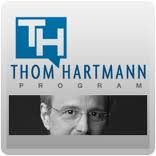
 After heads rolled last week at Barclays Bank following admission that the bank rigged key interest rates that underlie millions of consumer loans from home mortgages to credit cards, there are new allegations that other banks may be involved, and that this massive rip-off has been going on for decades. As one financial insider admitted to The Economist, “fifteen years ago, the word was that LIBOR was being rigged.” The insider went on to say that he remembers rate fixing as far back as the 1980’s. And Business Insider is reporting that the Federal Reserve was worried about LIBOR manipulation as far back as 14 years ago.
After heads rolled last week at Barclays Bank following admission that the bank rigged key interest rates that underlie millions of consumer loans from home mortgages to credit cards, there are new allegations that other banks may be involved, and that this massive rip-off has been going on for decades. As one financial insider admitted to The Economist, “fifteen years ago, the word was that LIBOR was being rigged.” The insider went on to say that he remembers rate fixing as far back as the 1980’s. And Business Insider is reporting that the Federal Reserve was worried about LIBOR manipulation as far back as 14 years ago.
Now, other banks are being investigated for their role in rate-rigging – including JP Morgan Chase, Bank of America, and UBS. However, it’s unlikely anyone will actually go to jail for this multi-billion dollar fraud since we have a two-tiered justice system – one for working people who can be thrown in prison for stealing a Slurpee - and one for the banksters who get to skate with a small fine when they steal billions of dollars.
Curiously, even Wall Street knows criminal activity pays off for banksters. A recent survey of 500 Wall Street senior executives revealed that 24% of bankers believe they need to “engage in unethical or illegal conduct to be successful.” I don’t call them banksters for nothing.



